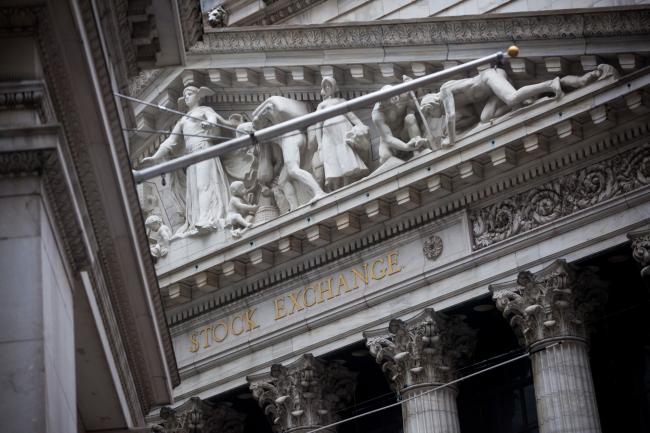Street Calls of the Week
(Bloomberg) -- President Donald Trump’s deregulation agenda for industry has had limited impact on the job market and capital spending during his first year in office, according to Goldman Sachs (NYSE:GS).
A study by the bank found little evidence that “non-financial deregulation has had meaningful macroeconomic impact to date,” according to research report released on Sunday that analyzed commentary from equity analysts, economic data and post-election stock returns. “While press reports often highlight deregulation as a key driver of the economy’s acceleration over the last year, identifying its causal impact is challenging.”
The findings aren’t surprising, the bank said. Rolling back regulations can be a “slow and difficult” task, regulations don’t impose that high of a cost, and state and local actors are often responsible for red tape that really make a difference, according to Goldman Sachs.
“We find no evidence that employment or capital spending accelerated more after the election in areas where regulatory burdens are higher,” it said.
The Trump administration has often lumped its deregulation actions along with tax reform as the key drivers of economic growth and a rally in the stock market. Equities stabilized on Monday after plunging this month following wage growth data that sparked inflation worries.
Modest Figure
Several key environmental policy changes over the past year included approval of the Dakota Access and Keystone XL pipelines, the withdrawal of the Clean Power Plan, and the easing of coal restrictions. But they had little impact on overall employment, with only 1,500 new jobs added in the coal industry since Trump’s election in November 2016. That’s a modest figure compared to the 2.5 million jobs added in the overall economy for the same time period, according to the report.
Trump Stretches Meaning of Deregulation in Touting Achievements
On stocks, Goldman found no correlation between regulatory burdens and post-election returns among companies on the Standard and Poor’s 500 Index.
“We do note, however, that financials -- a key area of deregulatory focus -- have generally outperformed,” the analysts said. “Moreover, there is at least suggestive evidence that among financials, outperformance has been somewhat higher on average for those with higher individual regulatory burdens.”
Financial Industry
Looking ahead, there seems a greater likelihood of Trump’s deregulation agenda affecting the financial industry if the administration implements several proposals that are under consideration, according to the report. Possible adjustments to leverage ratios for bank capital and regulatory changes favored by new Fed Chairman Jerome Powell and the new Fed Vice Chairman for Supervision Randal Quarles could happen in the years ahead, it said.
“Financial deregulation appears more likely to result in meaningful changes and is likely to be among the most important items on the regulatory agenda for 2018 and beyond,” Goldman Sachs said. “In particular, changes to stress testing, leverage ratio requirements, the Volcker rule, resolution planning, and the treatment of small banks appear possible, with the effects likely to be felt both within and beyond the financial sector.”
